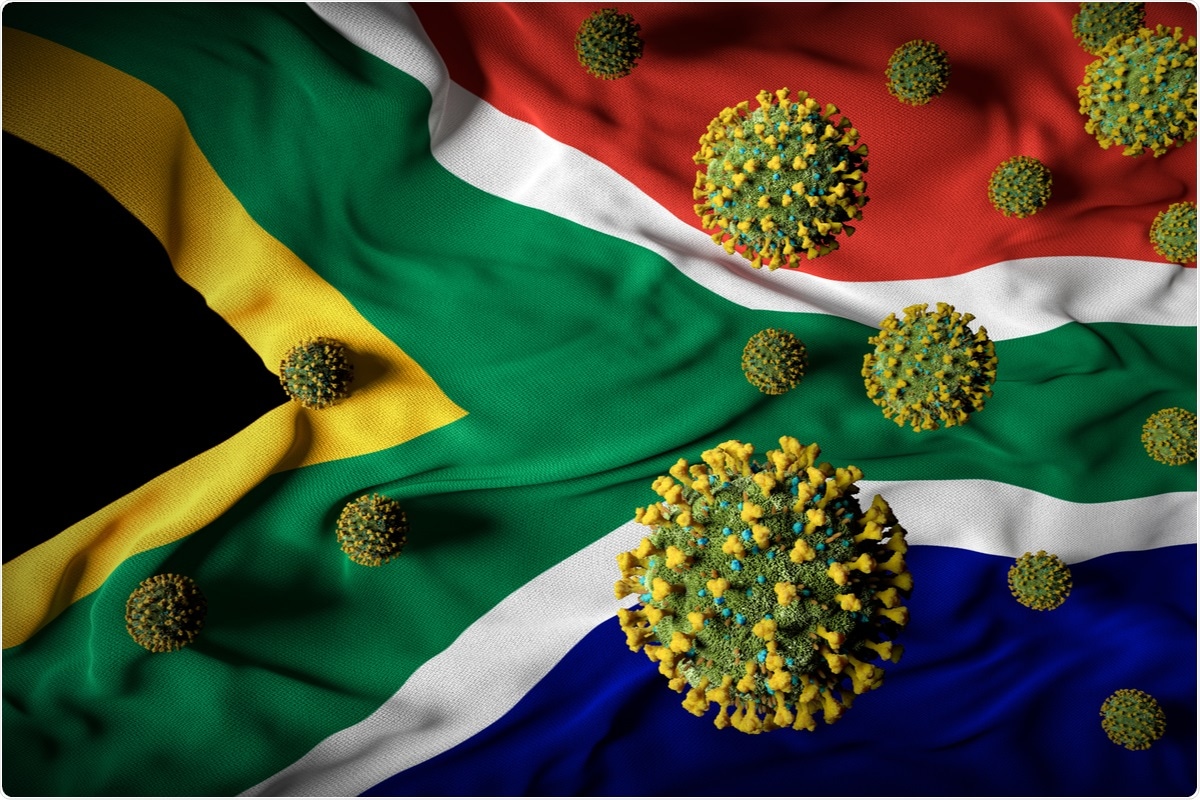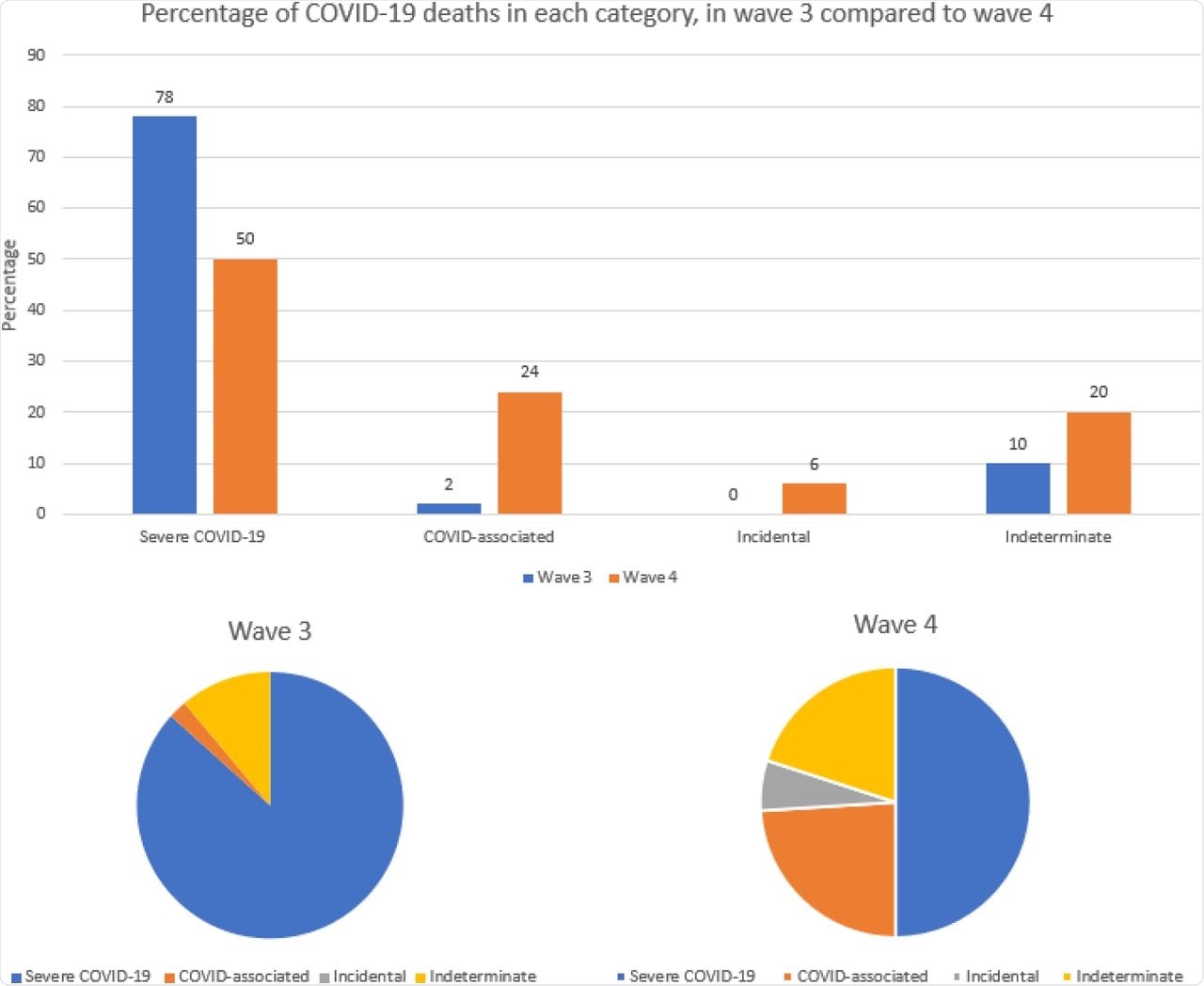In a recent study published on the medRxiv* preprint server, researchers observe changes in coronavirus disease 2019 (COVID-19)-related deaths during the fourth wave of the COVID-19 pandemic in Cape Town, the western province of South Africa.

Study: Change in Profile of COVID-19 Deaths in the Western Cape during the Fourth Wave. Image Credit: Darryl Fonseka / Shutterstock.com

 *Important notice: medRxiv publishes preliminary scientific reports that are not peer-reviewed and, therefore, should not be regarded as conclusive, guide clinical practice/health-related behavior, or treated as established information.
*Important notice: medRxiv publishes preliminary scientific reports that are not peer-reviewed and, therefore, should not be regarded as conclusive, guide clinical practice/health-related behavior, or treated as established information.
Background
The severe acute respiratory syndrome coronavirus-2 (SARS-CoV-2) is the causative pathogen of COVID-19. Several new SARS-CoV-2 variants have emerged as a result of mutations in the viral genome and are classified as variants of concern (VOC), variants of interest (VOI), or variants under monitoring (VUM). To date, five SARS-CoV-2 VOCs have been identified, including the Alpha, Beta, Gamma, Delta, and Omicron variants.
The SARS-CoV-2 Omicron variant is the most recent VOC to be identified and was first detected in November 2021 in South Africa. The Omicron variant has caused a significant surge in COVID-19 cases across the globe and is currently a major concern for health care systems.
Studies have revealed a staggering number of mutations within the spike protein of the Omicron variant that could be driving its high transmissibility and immune escape properties. However, the elevated numbers of COVID-19 cases have not translated into an increase in hospitalizations, which is likely due to the protection offered by prior SARS-CoV-2 infection or vaccination.
About the study
In the present study, researchers carried out a descriptive cross-sectional analysis of COVID-19 deaths in Cape Town. The team assessed the first 50 patients admitted to public hospitals in Cape Town during the third wave from June 15, 2021, that recorded five admissions per million, and after the onset of the fourth COVID-19 wave from December 6, 2021.
The patients who had a fatal COVID-19 outcome in the hospital or within 14 days of discharge from the hospital were included in this investigation. Each deceased case was independently analyzed by two clinicians who reviewed the available data on lab tests, medications, electronic clinical records, and ICD-10 coding by using the single patient viewer (SPV).
Study findings
The authors stratified patient deaths as follows:
- COVID-19-associated deaths as severe COVID-19 with evidence for COVID-19 pneumonia
- No COVID-19 pneumonia with two sub-strata:
- No evidence of COVID-19 pneumonia but death due to comorbidities such as diabetes, ketoacidosis, stroke, and malignancies or coinfections such as tuberculosis
- Asymptomatic cases where death is not due to COVID-19
- Insufficient data or where other pathologies cannot be ruled out as the primary cause of death
During the third wave of the COVID-19 pandemic, deaths occurred within five days. Comparatively, during the fourth wave, deaths occurred within an average of 12 days.
About 50% of deaths during the fourth wave were due to severe COVID-19 pneumonia, which is lower than 78% during the third wave. COVID-19-associated deaths stood at 2% and 24% in the third and fourth waves 3, respectively, with malignancy (10%) and tuberculosis (8%) being the most common diagnoses in the fourth wave.
No incidental death was observed during the third wave; however, 6% of deaths were noted in the fourth wave. Indeterminate deaths were 10% and 20% in the third and fourth waves, respectively.

Bar graph showing percentage of COVID-19 deaths in each category in wave 3 compared to wave 4, with pie charts below showing the breakdown per wave.
Conclusions
The present study observed a decline in the proportion of deaths due to COVID-19 pneumonia in the fourth COVID-19 wave. However, notably, an increase in deaths of patients who classified as COVID-19-associated and incidental, where patients had no evidence of pneumonia, was also observed during the fourth wave.
The findings of this study are consistent with the anecdotal clinician reports that are further substantiated by the evidence of lower consumption of oxygen by hospitals in Cape Town in December 2021. While deaths among all SARS-CoV-2-positive patients are usually reported as COVID-19 deaths that are included in the official tally, the observations of this study make it imperative to interpret and classify deaths appropriately during the pandemic.

 *Important notice: medRxiv publishes preliminary scientific reports that are not peer-reviewed and, therefore, should not be regarded as conclusive, guide clinical practice/health-related behavior, or treated as established information.
*Important notice: medRxiv publishes preliminary scientific reports that are not peer-reviewed and, therefore, should not be regarded as conclusive, guide clinical practice/health-related behavior, or treated as established information.